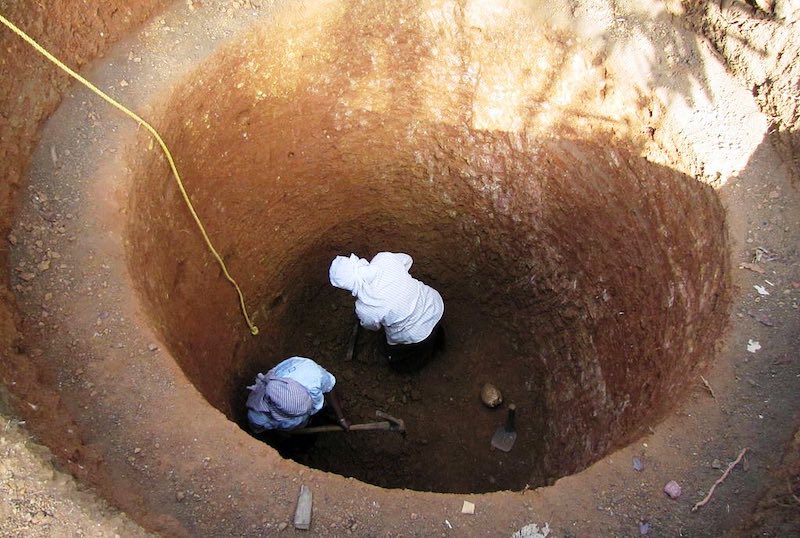What kind of legacy will you leave to the next generation? How will people remember you after you have gone? Each one of us will leave a spiritual legacy of some sort to our family, friends, and the next generation. How are you spending time and energy today in order to leave a spiritual legacy which will positively affect the next generation? As we read this week’s section from the Torah, we actually see numerous examples of how different ones attempted to influence their spiritual legacy. In the teaching that follows I will focus on one of those examples.
Toldot – The Generations of Isaac
This week’s Torah Portion is called תולדות – Toldot which means the generations, descendants, or history of someone. The Hebrew word Toldot is often used to introduce a certain person into the biblical narrative and provides both a list of the person’s descendants and a general history about that person and his lineage. This particular portion of Scripture focuses on Isaac and his descendants:
Now these are the records of the generations of Isaac, Abraham’s son: Abraham became the father of Isaac; and Isaac was forty years old when he took Rebekah, the daughter of Bethuel the Aramean of Paddan-aram, the sister of Laban the Aramean, to be his wife. Isaac prayed to the LORD on behalf of his wife, because she was barren; and the LORD answered him and Rebekah his wife conceived. – Gen. 25:19-21
Abraham’s line of blessing continued through Isaac. As we see in this week’s reading, Isaac’s descendants continued through Rebekah who became pregnant with twins, Esau and Jacob, as is detailed at the end of Genesis chapter twenty-five. The chosen line of blessing then continued through Jacob.
Abraham, Isaac, and Jacob are the three main patriarchs who have given us the nation of Israel by their descendants together with the Messiah who came into the world through the line of Judah. These three fathers of the faith each encountered a unique journey in the Land of Promise as well as a walk of faith that was tested throughout their lifetimes.
The lives of Abraham and Jacob are well documented with over ten chapters each detailing their lives in the book of Genesis. In contrast to Abraham and Jacob, Isaac is only given about two and a half chapters in his adult life with the half chapter detailing the birth and early years of Jacob and Esau and one full chapter providing us with the account of Jacob stealing the blessing of his father from his brother Esau. We are then actually left with only one full chapter that focuses on the adult years of Isaac: Genesis chapter twenty-six.
Spiritual Highlights From the Fathers
In considering the spiritual lessons that we learn from the fathers of the faith we generally remember Abraham for believing the LORD regarding His promises to him: “Then he believed in the LORD; and He reckoned it to him as righteousness.” (Gen. 15:6) Jacob is remembered for his various business dealings and striving for the blessing of God with the turning point being his unique encounter of wrestling with the angel:
Then he said, “Let me go, for the dawn is breaking.” But he said, “I will not let you go unless you bless me.” So he said to him, “What is your name?” And he said, “Jacob.” He said, “Your name shall no longer be Jacob, but Israel; for you have striven with God and with men and have prevailed.” – Gen. 32:26-28
Both Abraham and Jacob had unique life defining moments with the LORD which marked their faith in God and provided significant spiritual markers for the future of the nation of Israel. What about Isaac? What was Isaac’s life defining spiritual moment? What was Isaac’s spiritual legacy which he left to the next generation?
The Uniqueness of Isaac
We often remember Isaac in connection to the obedience of Abraham and Isaac in trekking up Mount Moriah when Isaac almost became the sacrifice (Gen. 22). Although this was a significant event in Isaac’s life, he was fairly inactive. It was Abraham’s faith which was being tested at that time.
Isaac lived a rather quiet life with much less drama compared to his father Abraham and his son Jacob. Isaac is also the only one of the three who remained in the Land of Promise from birth until death. He never left the land of Canaan, although he did wander about the land. What was Isaac’s legacy of faith as recorded in the Scriptures?
In the beginning of Genesis chapter twenty-six we read that the LORD appeared to Isaac:
Now there was a famine in the land, besides the previous famine that had occurred in the days of Abraham. So Isaac went to Gerar, to Abimelech king of the Philistines. The LORD appeared to him and said, “Do not go down to Egypt; stay in the land of which I shall tell you. Sojourn in this land and I will be with you and bless you, for to you and to your descendants I will give all these lands, and I will establish the oath which I swore to your father Abraham. I will multiply your descendants as the stars of heaven, and will give your descendants all these lands; and by your descendants all the nations of the earth shall be blessed; because Abraham obeyed Me and kept My charge, My commandments, My statutes and My laws.” So Isaac lived in Gerar. – Gen. 26:1-6
It was during a time of famine that God appeared to Isaac, reconfirmed the promises of Abraham to Isaac, and commanded him to stay in the land. Isaac obeyed the LORD.
A Consistent Life
There was not a great deal of conversation between Isaac and God throughout his life. God spoke to Isaac and he listened and obeyed. Isaac’s life was marked by consistency and faithfulness. Generally speaking, people are not interested in the humdrum life of faith that is consistent and steady. People do not usually write books or produce movies about faithful servants of God. Most people in this world, even believers in Yeshua, like the excitement and drama of great highs and lows in one’s life in order to stay engaged and entertained.
Isaac’s life may seem boring to some, however, he walked faithfully with God and obeyed Him. According to the Scriptures, Isaac’s spiritual legacy was marked by a consistent life that sought to walk according to God’s plans for him. We would be wise to appreciate the consistent life of faith that Isaac demonstrated and to imitate a lifestyle marked by obedience to God.
It is recorded in Genesis twenty-six that the LORD richly blessed Isaac and gave him success in everything he did:
Now Isaac sowed in that land and reaped in the same year a hundredfold. And the LORD blessed him, and the man became rich, and continued to grow richer until he became very wealthy; for he had possessions of flocks and herds and a great household, so that the Philistines envied him. – Gen. 26:12-14
There is always a price to be paid for success, envy. The Philistines envied the blessing and success of Isaac to the extent that the king of Gerar ordered Isaac and his company to leave the area (Gen. 26:16).
An Occupation of Spiritual Depth
Isaac obeyed the king’s order and moved on from the territory of his kingdom. As a result of Isaac having to move away from Gerar, Isaac and his company moved from place to place:
And Isaac departed from there and camped in the valley of Gerar, and settled there. Then Isaac dug again the wells of water which had been dug in the days of his father Abraham, for the Philistines had stopped them up after the death of Abraham; and he gave them the same names which his father had given them. But when Isaac’s servants dug in the valley and found there a well of flowing water, the herdsmen of Gerar quarreled with the herdsmen of Isaac, saying, “The water is ours!” So he named the well Esek, because they contended with him. Then they dug another well, and they quarreled over it too, so he named it Sitnah. He moved away from there and dug another well, and they did not quarrel over it; so he named it Rehoboth, for he said, “At last the LORD has made room for us, and we will be fruitful in the land.” – Gen. 26:17-22
Starting over in a new location required settling a company of people and animals with all that is needed. The most fundamental necessity around the world is clean drinking water and in the desert this necessity is heightened even more.

Life As a Well Digger
The first action of Isaac that we read about after he moved and settled in a new location was that he dug wells. Many of the wells that Isaac dug were the same wells that his father had dug. The Philistines had stuffed up these wells and Isaac sought to reestablish them. Why did the Philistines stop up the wells of Abraham?
The wells that Abraham had dug were markers and reminders that he lived in that land. The Philistines wanted to erase this memory. Not much has changed in 4000 years. God promised this Land to the descendants of Abraham, Isaac, and Jacob. Isaac knew the promise of God and he did everything in his strength and power to reopen the wells that his father Abraham dug and make them usable again. By reopening the wells which belonged to his father he was not only providing water for his people and animals but he was making a declaration of God’s promise to give the Land to him and his descendants.
Living Water
When Isaac instructed his servants to dig the first well, we read the following result: “…Isaac’s servants dug in the valley and found there a well of flowing water,…” (Gen. 26:19) The phrase “well of flowing water” in Hebrew is באר מים חיים – Be’er Mayim Hayim, and is literally translated, “well of living water.” The waters which they found were running, flowing water which is literally called living water. This is the first time that this phrase “living water” appears in the Bible.
We read how the Philistines argued with Isaac’s servants over the rights to the waters in the first two wells that they dug but then had peace regarding the third well. As Isaac moved from place to place he continually dug wells in search for living water. No where else in all of the Bible do we read about well digging more than here in Genesis chapter twenty-six. The word באר – Be’er – “well of water” appears less than forty times in all of the Hebrew Scriptures (The Old Testament), however in this one chapter (Genesis twenty-six), this word appears eleven times. Isaac was a prolific well digger.

The Value of Digging Wells
I believe we can learn a valuable spiritual lesson from the emphasis on Isaac’s career as a well digger in search of living water. Each time that Isaac and his company moved from place to place they could not rely on the well of water from their previous location. They always needed a fresh source of living water. In the same manner, we can never solely rely on the spiritual well that we drank from yesterday or in a previous location physically after we have moved on. We must always seek and find fresh, spiritual water every day and in every place that we find ourselves: in every country, in every city, and in every place that we live or even visit.
Just like we need fresh clean water to drink on a daily basis, we also need a constant flow of spiritual, living water in order to maintain our walk and relationship with the LORD. We have the opportunity to drink from God’s Word everyday and to seek Him in prayer and worship individually but we also need that community of believers from which we are able to give and receive in our spiritual lives. Anyone who solely relies on the well of spiritual water from yesterday or from a former place of residence (meaning a church or community of believers in another location), will quickly find themselves spiritually dry and thirsty. We must continually seek and find spiritual, living water!
Seek & You Will Find
In the continuing story of Genesis twenty-six, we read how Isaac moved yet again and how the LORD appeared to him a second time:
Then he went up from there to Beersheba. The LORD appeared to him the same night and said, “I am the God of your father Abraham; Do not fear, for I am with you. I will bless you, and multiply your descendants, For the sake of My servant Abraham.” So he built an altar there and called upon the name of the LORD, and pitched his tent there; and there Isaac’s servants dug a well. – Gen. 26:23-25
Again we see the consistency of Isaac’s lifestyle not only in digging fresh wells but also in worshiping the LORD God of heaven and earth. Isaac knew the necessity of living water physically to survive in the desert and he also knew that there was spiritual fulfillment in only worshiping the God of his father Abraham, the true source of living water spiritually.
It is common sense and a physical necessity in life to seek and find fresh, clean, living water wherever we may find ourselves in order to preserve our physical lives. It is also spiritual common sense and a spiritual necessity to seek and find spiritual, living water each and every day of life wherever we may find ourselves in this world. Isaac has given us a wonderful spiritual legacy which illustrates this principle of continually seeking and finding living water. Those who neglect this spiritual survival technique are in danger of drying up spiritually.

The Source of Living Water
This spiritual analogy of the LORD Himself as the true source of living water is brought to light by the prophet Jeremiah in the book that bears his name:
O LORD, the hope of Israel, all who forsake You will be put to shame. Those who turn away on earth will be written down, because they have forsaken the fountain of living water, even the LORD. – Jeremiah 17:13
Our spirits are made to drink deep from the rivers of life which are only found in the LORD Himself. He alone is our true source of living water spiritually.
We read in the above verse that those who forsake the LORD “will be put to shame.” The Hebrew encapsulates this phrase in one word יבושו – Ye’vo’shu and is literally translated either as “they will be ashamed” or as “they will dry up.” Both meanings are true in this context, however, the concept of “drying up” provides a much clearer picture of what happens to the one who forsakes the LORD as the fountain of living waters.
The spiritual legacy of Isaac still speaks to us today and reminds us of the necessity to continually be spiritual well diggers and seek for the living waters from the only true God of heaven and earth through His Son, Yeshua. Let us continually seek the living waters of spiritual truth and not only preserve our own thirsty spirits but leave a spiritual legacy that will continue to affect the next generation!
Shabbat Shalom!
If you enjoyed reading this article, share it today with friends! We also invite you to sign up for our weekly Torah Portion commentary on the sidebar to the right.
Help keep our weekly commentaries free and available to all. Click here to donate today:
*All Scripture take from NASB Copyright © 1960, 1962, 1963, 1968, 1971, 1972, 1973, 1975, 1977, 1995 by The Lockman Foundation
Torah Portion: Gen. 25:19-28:9
Haftara: Malachi 1:1-2:7
Return to Torah Portion Homepage
Copyright Jewels of Judaism. All rights reserved 2019



Thank you Daniel. I always enjoy your teachings. Through my dad’s family line, there truly has been Living Water flowing. My great grandmother prayed for his salvation for many years. My dad lived Scripture and was known as a peacemaker. I pray as I walk with Yeshua daily, my family will see Him as well. Be blessed this day dear brother and thank you.
Thanks for the comments Trish. What a privilege to have a godly spiritual legacy started by your great grandfather. May it continue on!
Shalom Daniel,
Thank you so much for this wonderful teaching. It spoke to me in a very personal way that I know you will understand.
May your time with your precious Mom and family be truly blessed. I will keep you all in my prayers, as always.
Blessings,
Carolyn
Thank you Carolyn!
Daniel